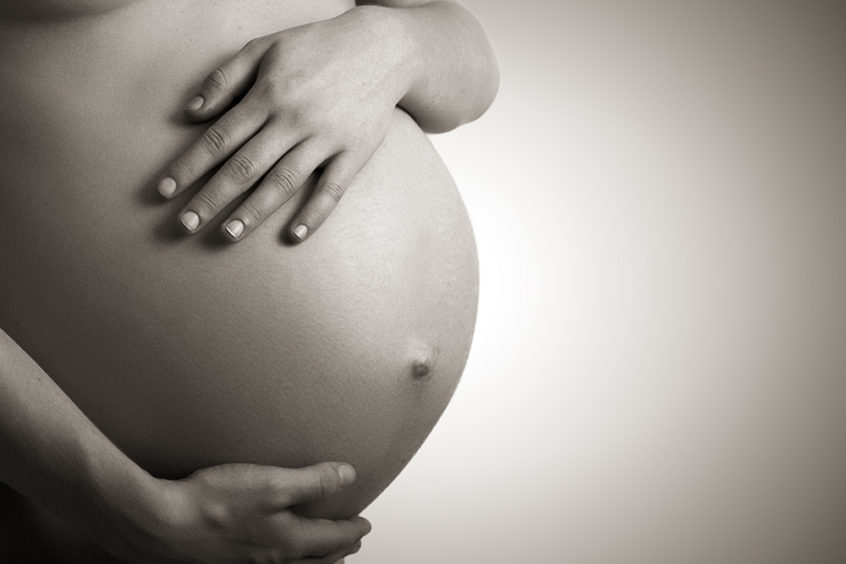What is a High-Risk Pregnancy?

One of the greatest joys in a woman’s life is to conceive and experience the beauty and wonders of a baby growing in her womb, but what if you think you might be facing a high-risk pregnancy?
Before you panic, we want to assure you that a high-risk pregnancy does not automatically mean that something bad is going to happen to you or your baby. Because a medical condition or other situation is signaling that you have a higher chance of pregnancy complications, you will require the special care of a doctor like Dr. Fliedner.
You need to know that many of our high-risk pregnancies have no complications, and with Dr. Fliedner and his staff’s care, most of these pregnancies result in happy and healthy moms and babies.
If you have been diagnosed with a high-risk pregnancy or are concerned that you may be a high-risk pregnancy, our experts at North Texas Vitality and North Texas Ob-gyn Associates can help. Contact us immediately to schedule an appointment.
What are high-risk pregnancies?
The textbook answer would define a high-risk pregnancy as one in which a woman and her fetus face a higher-than-normal chance of experiencing problems. Many factors (and we will not be able to address all of them here) may trigger a high-risk pregnancy, but we classify the causes in one of three categories: 1) the mother’s pre-existing health; 2) issues with the fetus or placenta; and 3) pregnancy-related issues. Let’s look at these three categories in more detail.
The Mother’s Health
In discussing the mother’s health we need to look at her lifestyle choices, her pre-existing medical conditions, and her age.
The Mother’s Lifestyle Choices
Being pregnant means looking at your lifestyle and abstaining from life choices in favor of delivering a healthy baby. Many of us understand the harmful effects that alcohol abuse, illegal drugs, and tobacco have on our bodies; however, the simple use of alcohol, drugs, and smoking can damage your fetus for life, if not kill her.
- Drinking Alcohol. Alcohol in a mother’s blood will pass to the baby through the umbilical cord. Drinking alcohol during pregnancy, even in trace amounts, is known to cause miscarriage, stillbirth, and a range of lifelong physical, behavioral, and intellectual disabilities. The baby becomes at-risk for fetal alcohol spectrum disorders (FASDs), and sudden infant death syndrome, among other health problems. The CDC warns women of the dangers of drinking alcohol while being pregnant.
- Tobacco Use. Smoking yourself or being exposed to secondhand smoke during pregnancy puts the fetus at risk for preterm birth, certain birth defects, and sudden infant death syndrome (SIDS). One study showed that smoking doubled or even tripled the risk of stillbirth or fetal death after 20 weeks of pregnancy. Research has also found that smoking during pregnancy leads to changes in an infant’s immune system.
- Drug Use. The National Institute of Child Health and Human Development reports that smoking marijuana and taking drugs during pregnancy can interfere with normal brain development in the fetus, possibly causing long-term health problems.
The Mother’s Pre-existing Health Conditions
Pregnancy can be difficult for women who have pre-existing medical conditions, and these women need to seek out the care of an ob-gyn with a long history of caring for high-risk pregnancies. Some of the major health concerns are listed below.
- Pre-existing Diabetes: This is different from gestational diabetes, which develops during pregnancy and typically ends at childbirth. Even women whose diabetes is well under control may have changes in their metabolism during pregnancy that require extra care or treatment to promote a healthy birth. Dr. Fliedner and his team of nutritionists and perinatologists provide one-on-one counseling and support to our diabetic patients.
- Chronic High Blood Pressure: If a woman has severe, chronic high blood pressure, or hypertension, she is at a higher risk of heart failure, bleeding in the brain, kidney failure, and placental abruption, where the placenta prematurely separates from the wall of the uterus. High blood pressure can increase the risk of low birth weight or preeclampsia. At North Texas Vitality, Dr. Fliedner carefully works with our mothers to monitor their blood pressure daily.
- Kidney Disease: Pregnant women with pre-existing kidney disease may experience difficulty getting and staying pregnant. They may experience further problems during pregnancy, such as delivering preterm, low-weight newborns. Dr. Fliedner and his staff monitor any changes in diet and medication during the pregnancy and schedule frequent visits with women with kidney disease to ensure both the mother’s and baby’s health.
- Autoimmune Disease. Women with autoimmune diseases such as lupus and multiple sclerosis are at increased risk for preterm birth and stillbirth. Some women may find that their symptoms improve during pregnancy, while others have flare-ups and other challenges. Dr. Fliedner monitors all medicines a mom is taking, as some which treat autoimmune diseases may be harmful to the fetus. Special care is needed here.
- Thyroid Disease. A pregnant woman with an overactive or underactive thyroid, can experience health issues. Her baby may struggle with heart failure, poor weight gain, and brain development problems. Under the supervision of an experienced ob-gyn, we can treat most thyroid problems with medicine or surgery.
- Obesity. Obesity in pregnant women can cause multiple health problems. It increases a woman’s chance of developing diabetes during pregnancy, which leads to other issues as shown above. It can cause a fetus to grow larger than normal. It has also been associated with an increased risk of structural problems in the baby’s heart. A study in 2014 by the British Medical Journal concluded, “Maternal overweight and obesity are associated with increased risks of infant mortality due to increased mortality risk in term births and an increased prevalence of preterm births.”
- HIV/AIDS. Mothers with HIV can pass it to their baby during pregnancy, labor and delivery, and breastfeeding. Fortunately, Dr. Fliedner and his team have effective treatments to reduce and prevent the spread of HIV from mother to fetus or child.
- Zika Infection. Zika is an infection caused by a virus that spreads from one person to another from the bite of an infected mosquito. Research shows that getting Zika during pregnancy can cause birth defects in the developing fetus, causing the brain and skull to be smaller than normal. Researchers are still just learning the possible effects of Zika on pregnancy.
The Health of the Fetus
When evaluating pregnancies, doctors look at the health of the baby as a possible cause of high-risk pregnancies. We have listed below some of the more common fetal issues that may develop during pregnancy and cause your doctor to take more preventative care.
Some of the fetal risk factors include:
- Birth defects, such as congenital heart defects
- Chromosome problems, such as Down Syndrome
- Genetic syndromes, such as Fragile X Syndrome
- Inherited diseases, such as cystic fibrosis
- Fetal growth restriction: This occurs when the fetus grows more slowly than normal, commonly due to the reasons discussed above –– maternal high blood pressure, kidney disease, advanced diabetes, heart or respiratory disease, anemia, infection, substance abuse, or smoking.
- Fetal anemia: This is an inadequate number or quality of red blood cells to carry oxygen to the cells and organs within the body of the fetus.
Pregnancy-Related Issues
Various complications can develop during a pregnancy which pose risks to the mother and child. Examples include an unusual placenta position, fetal growth that is less than the 10th percentile for gestational age, and rhesus (Rh) sensitization — a condition that can occur when the mother’s blood group is Rh-negative and the baby’s blood group is Rh-positive.
In addition, the mom’s pregnancy history can put a pregnancy at high risk. A history of pregnancy-related hypertension disorders, such as preeclampsia, increases the risk of having this diagnosis during the next pregnancy. If you have had multiple premature births, you’re at increased risk of early delivery in your next pregnancy. It’s vital to provide your doctor with your complete obstetric history so that he can prescribe the best care for you and your baby.
Here is a list of pregnancy-related risk factors to consider:
- Multifetal gestation (twins, triplets)
- A history of multiple miscarriages or pregnancy losses
- Stillbirth
- Preeclampsia
- Placental abruption
- Abnormal placentation
- Preterm premature rupture of membranes
- Too much or too little amniotic fluid
- Infections
- Twin-to-twin transfusion syndrome
This is only a partial list of conditions and circumstances that may result in a pregnancy being labeled “high risk.” If a mother is over the age of 35, the pregnancy may also be considered high risk.
What should I look for if I think I have a high-risk pregnancy?
- Vaginal bleeding or watery vaginal discharge
- Severe headaches
- Pain or cramping in the lower abdomen
- Decreased fetal activity
- Pain or burning with urination
- Changes in vision, including blurred vision
- Sudden or severe swelling in the face, hands, or fingers
- Fever or chills
- Vomiting or persistent nausea
- Dizziness
- Thoughts of harming yourself or your baby
Steps to Take Immediately
Whether you know that you’ll have a high-risk pregnancy, or you simply want to do what you can to prevent a high-risk pregnancy, simplify your life and avoid risky situations. If you smoke, quit. Alcohol and illegal drugs are not permitted either. Search for an ob-gyn with a history of caring for women in high-risk pregnancies.
The care practitioners at North Texas Vitality and its sister organization North Texas OB-Gyn are experienced in high-risk pregnancies. Dr. Fliedner is Flower Mound’s high-risk pregnancy doctor. His passion for women’s health developed while in medical school where he focused on working with challenging high-risk pregnancies and delivering healthy babies. By taking the extra time to truly listen to the concerns of each patient, Dr. Fliedner is able to address difficult health issues and restore wellness. He is known in the area for his expertise in minimally invasive robotic surgery, and he guest lectures on these surgery techniques to other doctors seeking to improve a quicker recovery and less pain for their patients.
To make an appointment with Dr. Fliedner call our office at 469-455-1665 or make an appointment online.
